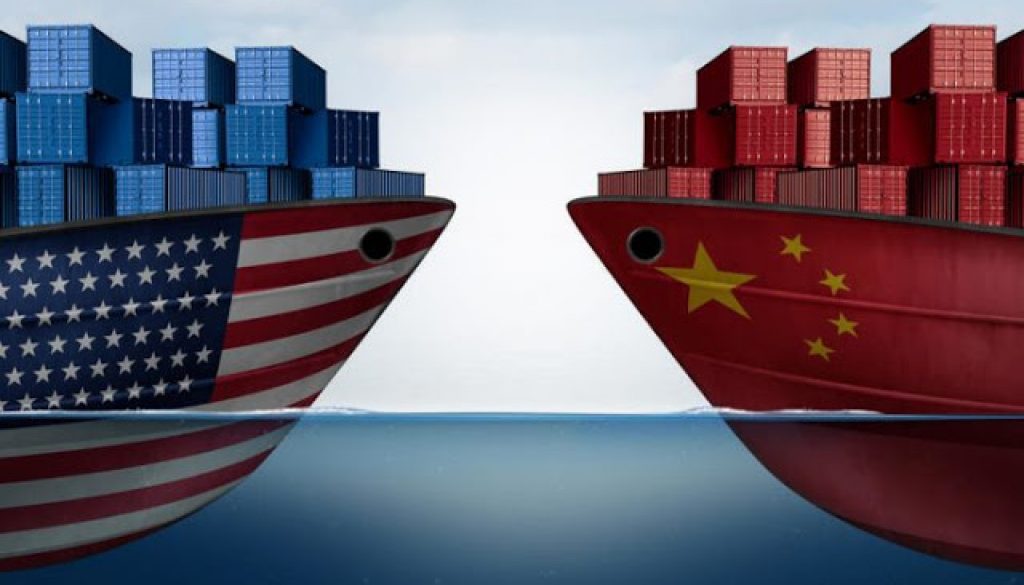Averting a US-China trade war difficult because of deep differences between the two economies: Trade experts
SINGAPORE – Averting a United States-China trade war will be
difficult because of the deep differences in the economies of the two
countries, trade experts said at a conference on Tuesday (June 26).
difficult because of the deep differences in the economies of the two
countries, trade experts said at a conference on Tuesday (June 26).
The recent move by the the US to impose punitive tariffs on US$50 billion of Chinese goods to punish Beijing for alleged intellectual property theft is a reflection of the deeper issues between the two that have been
building up for decades, they told the East-West Centre’s International
Media Conference.
building up for decades, they told the East-West Centre’s International
Media Conference.
At the heart of the tensions is the fact that China follows a model
of state-directed capitalism while America – and the global trading
system which it helped create – champions free markets, free trade and a
hands-off approach by the government to business.
of state-directed capitalism while America – and the global trading
system which it helped create – champions free markets, free trade and a
hands-off approach by the government to business.
“The existing trade system we have in place is entirely incapable of
accommodating a country as large as China playing the game of
international trade by a somewhat different set of rules – specifically,
state-directed capitalism,” said Mr Stephen Olson, a Hong Kong-based
Hinrich Foundation research fellow and former US trade negotiator.
accommodating a country as large as China playing the game of
international trade by a somewhat different set of rules – specifically,
state-directed capitalism,” said Mr Stephen Olson, a Hong Kong-based
Hinrich Foundation research fellow and former US trade negotiator.
He was speaking at a panel discussion on the topic entitled “Pulling
back from the brink: Can a US-China trade war be averted” at the
Singapore Management University.
back from the brink: Can a US-China trade war be averted” at the
Singapore Management University.
Fellow panellist Steven Okun, who sits on the board of the American
Chamber of Commerce in Singapore, said: “I think we are already in a
trade war. If we’re in a trade skirmish right now then it will
inevitably become a trade war, because it’s very difficult to have those
two systems in balance.”
Chamber of Commerce in Singapore, said: “I think we are already in a
trade war. If we’re in a trade skirmish right now then it will
inevitably become a trade war, because it’s very difficult to have those
two systems in balance.”
Both panellists outlined how recent US trade actions were responses to government intervention in China’s economy.
President Donald Trump’s tariffs on steel imports, for instance, were “necessitated” by a global glut in steel largely
caused by significant increases in Chinese production of steel spurred
by Chinese government subsidies and trade policies which helped the
export of that excess steel, said Mr Olson.
caused by significant increases in Chinese production of steel spurred
by Chinese government subsidies and trade policies which helped the
export of that excess steel, said Mr Olson.
Similarly, intellectual property disputes could be traced to the
Chinese government’s “Made in China 2025” plan to gain pre-eminence in
10 strategic industries, he said.
Chinese government’s “Made in China 2025” plan to gain pre-eminence in
10 strategic industries, he said.
Mr Okun said: “If you’re going to not only insist on robust state
support, but couple it with what the US found – forced tech transfers,
cyber theft, discriminatory licensing practices – all of that cannot
coexist with the World Trade Organisation.”
support, but couple it with what the US found – forced tech transfers,
cyber theft, discriminatory licensing practices – all of that cannot
coexist with the World Trade Organisation.”
The US and China also think they can take each other on, even though their direct battle will hurt both countries, said Mr Okun.
The panel also agreed that while both systems needed to find a new
way to coexist, the unilateral tariffs imposed by President Trump –
which would also hurt America’s allies – were the wrong solution.
way to coexist, the unilateral tariffs imposed by President Trump –
which would also hurt America’s allies – were the wrong solution.
Multilateral trade pacts like the Trans-Pacific Partnership, which Mr
Trump abandoned shortly after assuming office last year, could have
worked, said Mr Okun.
Trump abandoned shortly after assuming office last year, could have
worked, said Mr Okun.
The TPP, for instance, addressed issues of state-owned enterprises
and rules by which to allow foreign payment systems and social media
such as Facebook in countries.
and rules by which to allow foreign payment systems and social media
such as Facebook in countries.
“The TPP would’ve given China an incentive to change and play by 21st
century rules. But the Trump administration… thinks it can win on
tariffs and blocking Chinese investment,” said Mr Okun.
century rules. But the Trump administration… thinks it can win on
tariffs and blocking Chinese investment,” said Mr Okun.
Fellow panellist Pan Xiaoming, a research fellow at Shanghai’s
Institute for World Economy Studies, also said that the Trump
administration’s trade policies may hurt the world’s hard-won economic
recovery after the 2008-9 financial crisis.
Institute for World Economy Studies, also said that the Trump
administration’s trade policies may hurt the world’s hard-won economic
recovery after the 2008-9 financial crisis.
“If we try to point fingers at each other it will bring us nowhere.
The US-China bilateral trade relationship is not a zero-sum game, it’s a
win-win situation. We need each other as a trading partner,” she said.
The US-China bilateral trade relationship is not a zero-sum game, it’s a
win-win situation. We need each other as a trading partner,” she said.
Agreeing, Mr Olson said it was futile to debate which system was better, because both were here to stay.
“We should be focusing our attention on how to develop a framework, a
modus operandi, to allow these two systems to coexist with each other,”
he said.
modus operandi, to allow these two systems to coexist with each other,”
he said.
“The US-China trade relationship has been immensely mutually beneficial and we have to find a way to keep it on track.”




